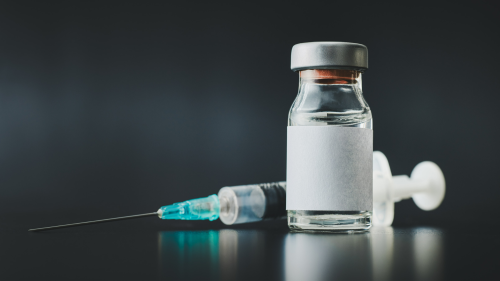
-
Understanding primary immunodeficiency (PI)

Understanding PI
The more you understand about primary immunodeficiency (PI), the better you can live with the disease or support others in your life with PI. Learn more about PI, including the various diagnoses and treatment options.
-
Living with PI
-
Addressing mental health
-
Explaining your diagnosis
- General care
- Get support
- For parents and guardians
-
Managing workplace issues
- Navigating insurance
-
Traveling safely

Living with PI
Living with primary immunodeficiency (PI) can be challenging, but you’re not alone—many people with PI lead full and active lives. With the right support and resources, you can, too.
-
Addressing mental health
-
Get involved

Get involved
Be a hero for those with PI. Change lives by promoting primary immunodeficiency (PI) awareness and taking action in your community through advocacy, donating, volunteering, or fundraising.
-
Advancing research and clinical care
-
Research Grant Program
-
Consulting immunologist
-
Diagnosing PI
-
Getting prior authorization
-
Clinician education
-
Survey research
-
Participating in clinical trials

Advancing research and clinical care
Whether you’re a clinician, researcher, or an individual with primary immunodeficiency (PI), IDF has resources to help you advance the field. Get details on surveys, grants, and clinical trials.
-
Research Grant Program
Vaccines save lives by preventing the spread of deadly diseases and protecting individuals from severe illness and complications. Any decrease in vaccination rates is particularly dangerous to those with compromised immune systems who rely on herd immunity. A lack of herd immunity increases their vulnerability to preventable infections that could lead to severe complications, including death. It is critically important that those entrusted with safeguarding the health of Americans firmly believe in the science behind vaccines and their proven ability to protect public health.
The Immune Deficiency Foundation (IDF) is a non-partisan organization representing the community of individuals affected by primary immunodeficiency (PI), a group of more than 550 rare, chronic conditions in which part of the body's immune system is missing or does not function correctly. PI can cause infection, organ damage, malignancy (cancer), allergy, autoimmunity, autoinflammation, or a simultaneous combination of these issues. According to the National Institutes of Health (NIH), there are approximately 500,000 individuals in the U.S. with a PI. Every year, thousands go undiagnosed.
IDF is also the founding member of the Immunocompromised Collaborative, the united voice of communities whose health status makes them most vulnerable to threats from infectious disease. These communities include a broad range of patient populations including people with PI, blood cancer, autoimmune conditions, HIV/AIDS, and organ and bone marrow transplants.
People who are immunocompromised are highly susceptible to pathogens such as measles, pertussis (whooping cough), COVID-19, RSV and the flu and are more likely to have severe outcomes from these infections than the general public. In the U.S., 6.2% of adults under the age of 65 and 2.6% of children have compromised immune systems. This means that 14 million people, including two million children, under 65 have immune systems that don’t function properly, making them particularly vulnerable to these pathogens.
Vaccines stand as one of the most significant public health achievements of the 20th century, revolutionizing disease prevention and dramatically improving the health and well-being of the American people. By stimulating the body's immune system to recognize and combat specific pathogens, vaccines have eradicated diseases like smallpox, significantly reduced the incidence of polio and measles, and continue to protect millions from a host of preventable illnesses. These lifesaving interventions not only safeguard individuals but also strengthen community immunity, shielding the most vulnerable members of society—infants, the elderly, and those with compromised immune systems.
People with PIs and other immunocompromising conditions are unable to mount adequate protective antibody responses to infections and the vaccines developed to fight these infections. The best protection for these individuals is to ensure that there is robust herd immunity. In other words, there must be enough people in the community vaccinated to protect those who are immunocompromised from infection. For example, 95% of the population should be vaccinated to achieve herd immunity for measles. The more people who get vaccinated in a community, the greater the chances are of diminishing the spread of the disease, protecting everyone in the community, even those who are unable to benefit directly from vaccines.
The Immune Deficiency Foundation has long advocated in support of vaccines. In 2014, IDF’s Medical Advisory Committee issued vaccine guidelines, which included, “(1) Education about the critical need for maintenance of herd immunity (community immunity) in the population at large. Herd immunity offers valuable protection to patients with PI who are unable to mount protective antibody responses.” In addition, a former President & CEO of IDF testified before the Senate HELP committee in a 2019 hearing entitled “Vaccines Save Lives: What Is Driving Preventable Disease Outbreaks?,” sharing in part “We depend on vaccines. I understand the concern that some new parents have, particularly given misinformation on social media, but that fear can’t override facts. History has shown us that vaccines work. Science has shown us that vaccines are necessary. And mathematics has shown that the odds of children having a healthy life are magnitudes greater if they’ve had their vaccines.”
Our advocacy and efforts focus on strongly supporting the immunocompromised community and the science that has proven to be effective in protecting them. We are very concerned about falling rates of vaccination due to the increased dissemination of misinformation around the safety and effectiveness of vaccines. The Children’s Health Defense, founded and financed in part by the current nominee for Secretary of Health and Human Services, is the leading source spreading inaccurate information regarding vaccines. If vaccination rates continue to fall, people with PI and other immunocompromising conditions will be increasingly at risk of exposure to diseases from which they cannot recover. In many cases, we only have vaccines to prevent the spread of diseases, not effective treatments to mitigate life-threatening outcomes.
It is essential that the leadership of Health and Human Services, the public servants charged with protecting the health of all Americans, embraces the longstanding and tested science of vaccines. Without a commitment to support vaccines, programs at NIH, FDA, and CDC focused on vaccine development, education, and dissemination are at risk, endangering the health of millions, including those with compromised immune systems.
Immunocompromised Collaborative
The Immune Deficiency Foundation is the founding member of the Immunocompromised Collaborative, the united voice of communities whose health status makes them most vulnerable to threats from infectious disease.
Get to know the CollaborativePress room
A hub of information for journalists interested in writing about the Immune Deficiency Foundation with direct links to learn more about the organization, primary immunodeficiency, and those affected.
Learn more about Immune Deficiency FoundationRelated resources

Foundation provides guidance amid changing vaccine recommendations

Education policy changes could impact students with PI

Foundation to follow medical societies' vaccine schedules in light of ACIP hepatitis B decision
Sign up for updates from IDF
Receive news and helpful resources to your cell phone or inbox. You can change or cancel your subscription at any time.





The Immune Deficiency Foundation improves the diagnosis, treatment, and quality of life for every person affected by primary immunodeficiency.
We foster a community that is connected, engaged, and empowered through advocacy, education, and research.
Combined Charity Campaign | CFC# 66309

